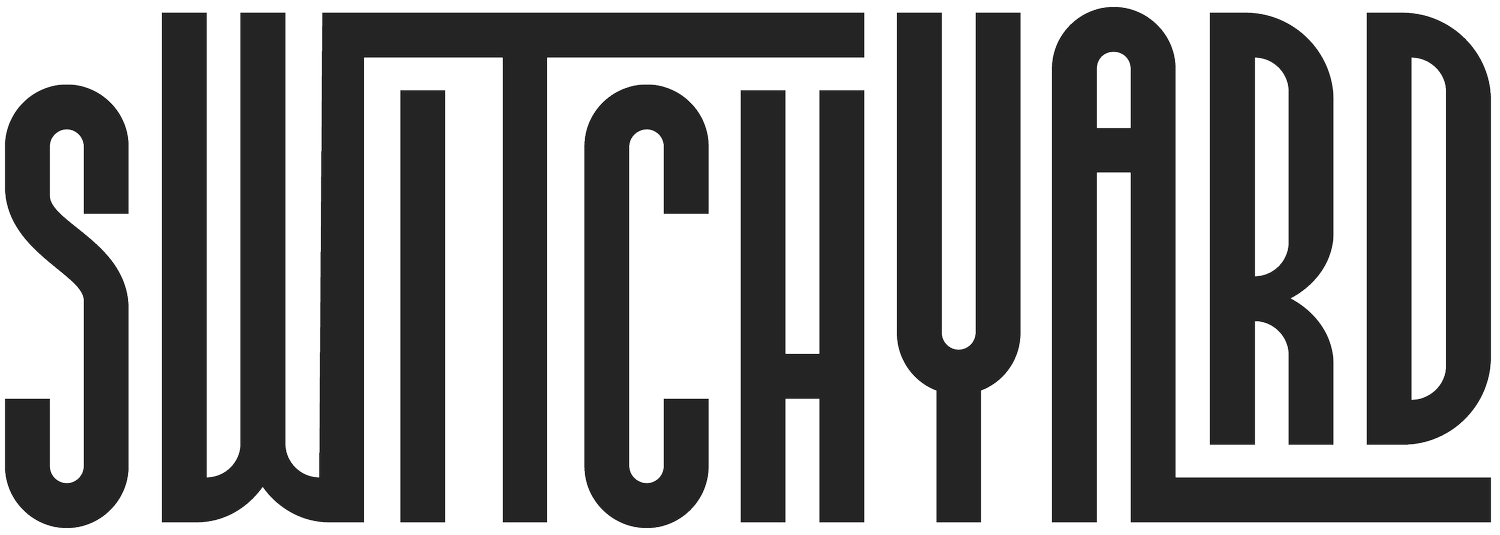Eps. 19 - Echo Chambers: The Destructive Effects of Silos and Misinformation
In January 2025, just after the Inauguration of President Donald Trump, Switchyard organized a gathering of journalists from across the country to discuss how we would go about covering the new administration. We gathered together the biographers of Michelle Obama and Mitch McConnell, authors of books about the Koch Brothers and The Family, about Amazon and Google and Facebook, about the rise of white supremacy and the cash value of racism. We featured writers and editors for the New York Times, the LA Times, The New Yorker, The Atlantic, and Mother Jones, for StoryCorps, This American Life, and Reveal. We also had musicians, filmmakers, novelists, essayists, and poets.
As we had hoped, the gathering was a source of solace, a call to action and a chance to recommit ourselves to our values and best practices and a rekindling of our belief in the power of storytelling, in all its forms. In these unprecedented and difficult times, we are once again reporting on a president who characterizes journalists as enemies of the state and jokes about killing us. And he empowers and emboldens state and local level officials to indulge their most authoritarian impulses. Here, in the heart of Tulsa, on the grounds of the Tulsa Race Massacre and the end of the Trail of Tears, we have state officials who have sought to block the teaching of that history while requiring schools to buy Bibles branded with the new president’s name.
The solemn question each of our panels addressed: What are we going to do now?
In this live episode, we hear from Gal Beckerman, Benjamin Peters, Peter Slevin, and Siva Vaidhyanathan with responses from Alec MacGillis and Maddie Oatman.
Gal Beckerman is a staff writer at The Atlantic. His work has appeared in the Washington Post, The New Republic and Bookforum. He is the author of The Quiet Before: On the Unexpected Origins of Radical Ideas and When They Come for Us We’ll Be Gone.
Benjamin Peters is an author and media scholar at the University of Tulsa. His books include How Not to Network a Nation: the Uneasy History of the Soviet Internet, Your Computer is on Fire, and Digital Keywords: A Vocabulary of Information Society & Culture. He is currently writing on the Soviet prehistory to AI and Russian hackers.
Peter Slevin is a Northwestern University professor and contributing writer for The New Yorker who spent a decade on the national staff of The Washington Post. His career as a reporter has taken him around the country and the globe, where he has covered events and personalities of every description, taking particular interest in telling stories rich with the voices of the people involved. His ambitious biography of Michelle Obama was voted one of the best biographies of the year by PEN America, and was translated into Chinese, Korean and Dutch.
Siva Vaidhyanathan is the Robertson Professor of Media Studies and director of the Center for Media and Citizenship at the University of Virginia. He is the author of The Googlization of Everything (and Why We Should Worry) and Antisocial Media: How Facebook Disconnects Us and Undermines Democracy. His work spans academia, journalism, and media, with writings featured in The New Yorker, The New York Times, Slate, and The Guardian, where he is a regular columnist. He also directs projects like the Democracy Lab and podcasts at UVA's Center for Media and Citizenship.
Alec MacGillis is a reporter at ProPublica, where his focus in recent years has included gun violence, economic inequality and the post-pandemic crisis in public education. His work has appeared in the New Yorker, New York Times Magazine, and the Atlantic. He is currently a fellow in the Watchdog Writers Group at the University of Missouri.
Maddie Oatman is a writer and editor based in San Francisco, covering a wide range of subjects including culture, science, justice, and people's relationship to place. She is an award-winning senior editor at Mother Jones. Her work has appeared in High Country News, Outside, and the San Francisco Chronicle, and been anthologized in The Best American Science and Nature Writing. She is a 2024-2025 BookEnds fellow.











